Trivium's Corey Beaulieu talks seven-string guitars, signature models and songwriting
The Trivium man on going to seven
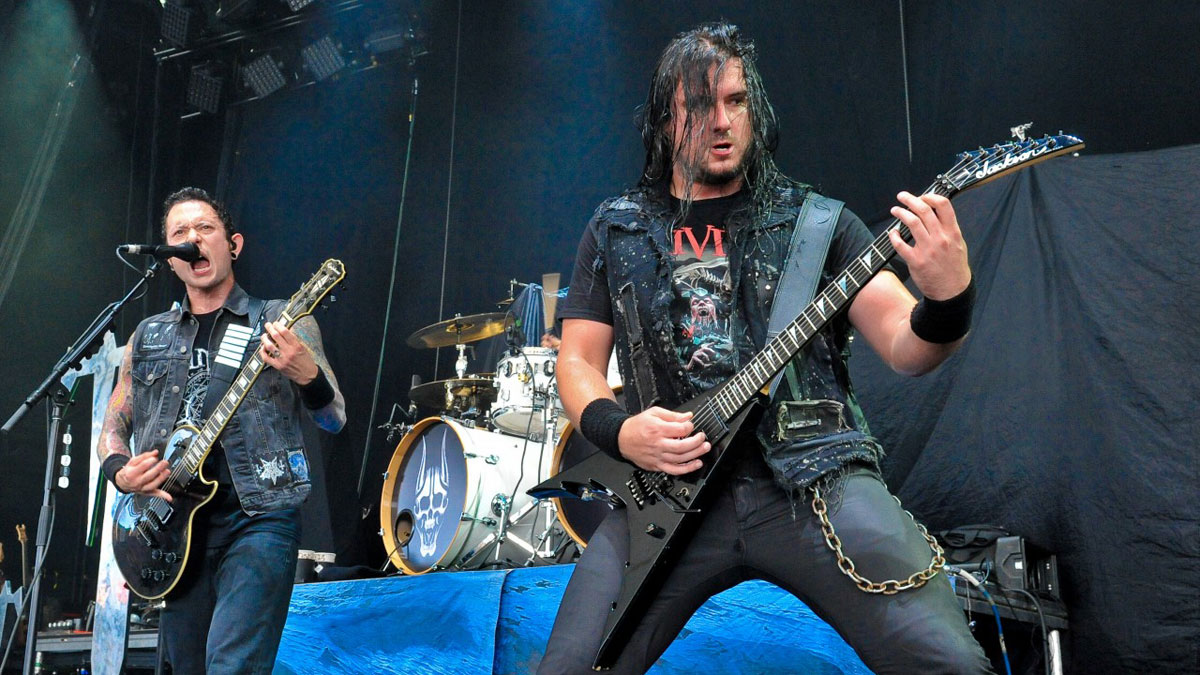
Introduction
The Trivium guitarist explains how 7-string guitars inspired the band’s songwriting in the past, and do so again on latest album, silence in the snow.
When did you first play a seven-string guitar?
“The first time was probably when we were recording Ascendancy [2004/2005] - I recorded some of the guitar solo parts on the record with one of producer Jason Suecof’s Ibanez RG seven-strings.
It was Matt [Heafy] wanting to write seven-string material that forced me to get one
“I remember one of them sounded particularly good for lead stuff. But I started playing it full time when we did The Crusade, we wrote some songs on seven-string and then I actually got my first seven-string when we were touring for that record, because we needed to play some of the seven-string stuff live.
“It was Matt [Heafy] wanting to write seven-string material that forced me to get one and be comfortable with going from a six to a seven without being confused!”
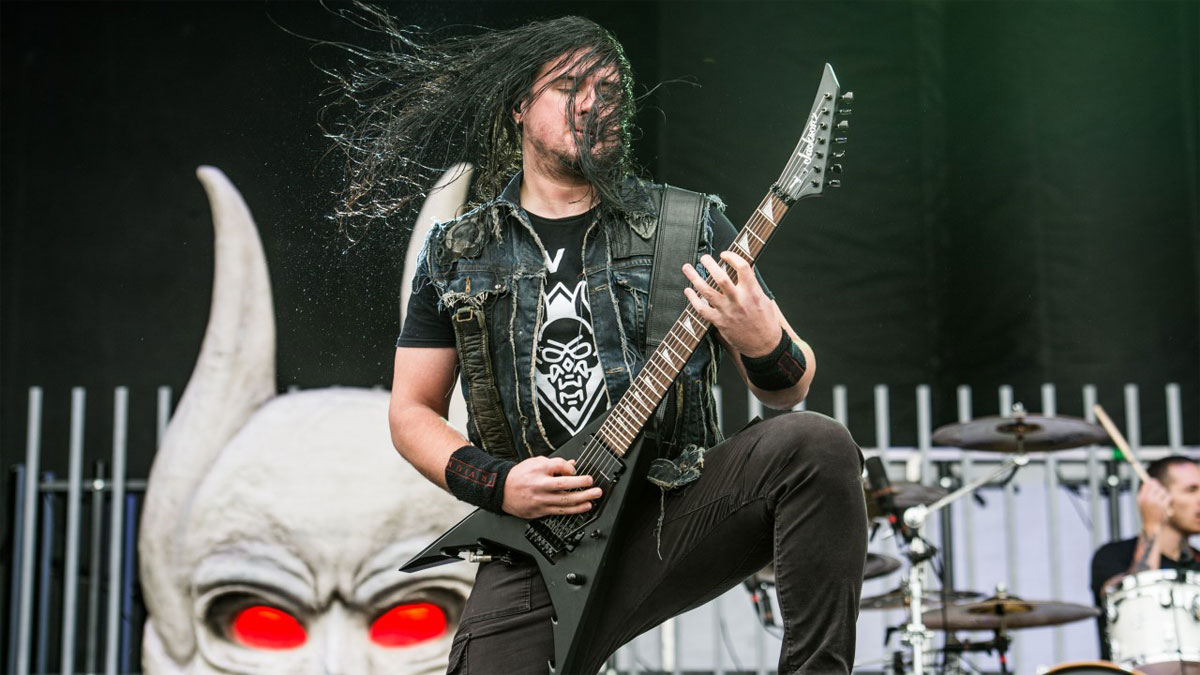
Seven Shoguns
Trivium’s next release, Shogun, was very much a seven-string album for you…
“It was predominantly seven-string. There are some songs on that record that people think are six-strings because we definitely don’t overdo making it sound like we’re cranking on a seven-string because of the keys we’re playing in. There’s a lot of fun stuff to play on that record.
We’ve written material in Bb, which is a new tuning for us on record and we’ve also been experimenting in drop tuning, G#
“We’ve been writing on seven-strings again [2015 album Silence In The Snow]. We’re using a different tuning on seven-string than we’ve used before too. All the previous seven-string stuff was in B standard but over the previous years we’ve been playing live half a step down.
“So we’ve written material in Bb, which is a new tuning for us on record and we’ve also been experimenting in drop tuning, G# I think. We’ve been experimenting to give us new creative avenues to dive into.”
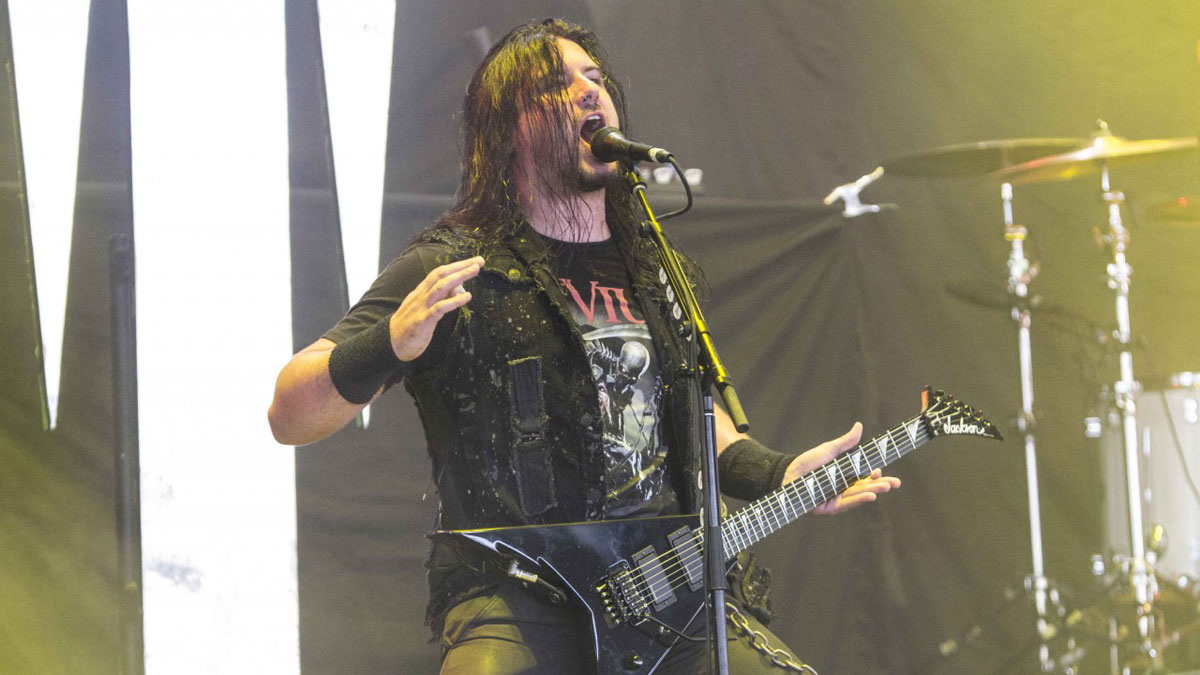
Megafan
What made you want to play Jackson?
“Everyone who grows up with guitar is always drawn towards certain things and growing up, there was always something about Jackson. It all stems from being a fan of Megadeth. Especially Rust In Peace; it was a massive album for me as a guitar fan and I really looked up to Dave Mustaine and Marty Friedman.
I’d always see pictures in guitar magazines with Mustaine rocking the black King V
“I’d always see pictures of them in guitar magazines with Mustaine rocking the black King V. From then on I was sucked into the V style and always thought Jacksons had a metal as f**k look.
“Right before we did Ozzfest in 2005 I’d got my first Jackson King V with Trivium and since then Jackson has always been my first love. Obviously I left and did Dean for a little while but once I had the opportunity to talk with them again, there was no other brand that I was interested in playing besides Jackson. I’ve been playing Jackson guitars again for five years now.”
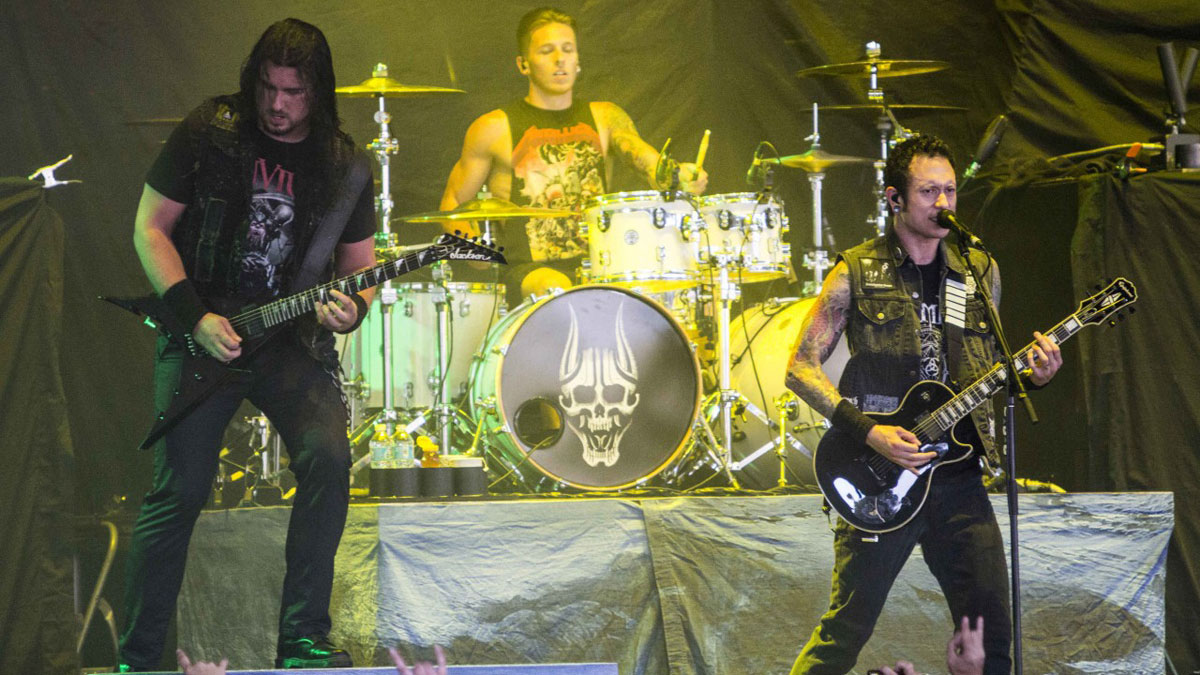
Custom axe
What was the experience of developing your signature model like?
“It’s been a couple of years in the making. We’ve been working on multiple designs, trying different ideas and paint designs but I’m glad we didn’t rush it. I wanted to have my own twist to add to the history of the V.
Jackson are coming out with the production model that will be much more affordable
“The Custom Shop people were cool to build different ideas to find out what I liked personally. I’d bring them out on tour and try them out. It was trial and error for a couple of years, Jackson would make suggestions and I was like a kid in a candy shop! I learned a lot, figuring out what I like and don’t like about guitars.
“Jackson are coming out with the production model that will be much more affordable. I’ve been getting ready to go overseas to Bloodstock and a couple of festivals to use them live.
“I’ve been A/B’ing them and going from playing $3,000 custom shop models to the production models. It’s almost unnoticeable in the quality and the playability of the guitar.
“It has the same pickups that my Custom Shop model has, its got a Floyd Rose and a through-neck too. We wanted to make a great guitar people could afford, especially our fans. It’s something that will last them a really long time too.”
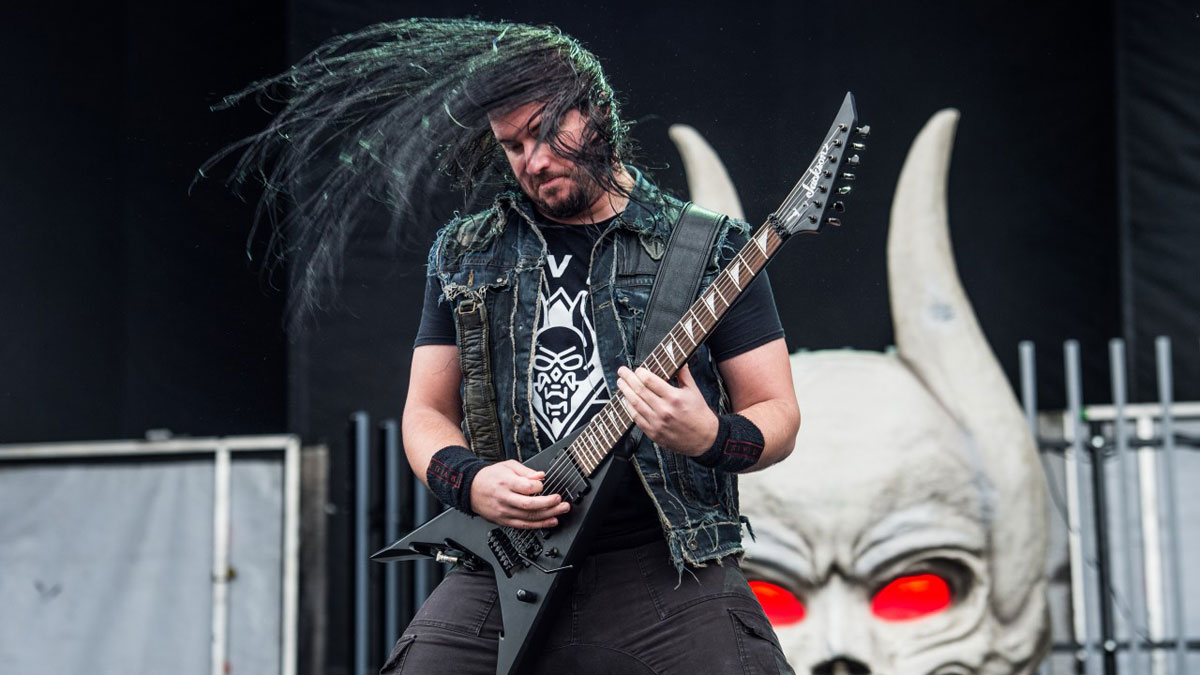
Songwriting on a seven
Do you have any tips for newcomers to seven-string guitars?
“It might seem daunting with a whole other string and [wider neck] and it sounds like a big jump, but if you look at it in the big scope of things, you’re really only adding five notes to your palette of playing.
If you’re coming at it from a songwriting perspective, don’t fall into the trap of playing on the low strings all the time
“Because once you hit the B string on the fifth fret, you’re already on open E. So you’re adding a couple more notes than you’re able to have on a six-string, but the tonality if you’re a songwriter, it adds a sonic element that really gives you a different vibe.
“If you’re coming at it from a songwriting perspective, don’t fall into the trap of playing on the low strings all the time; use it to your advantage by adding different sounds to your song.
“I know there’s a lot of bands out there playing seven- or eight-string with constant B; always low. Use it to your advantage and don’t pigeonhole yourself by being drunk on the low strings because it’s new.”
Total Guitar is Europe's best-selling guitar magazine.
Every month we feature interviews with the biggest names and hottest new acts in guitar land, plus Guest Lessons from the stars.
Finally, our Rocked & Rated section is the place to go for reviews, round-ups and help setting up your guitars and gear.
Subscribe: http://bit.ly/totalguitar


